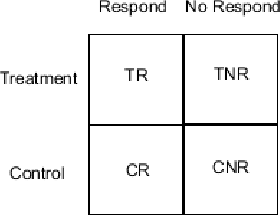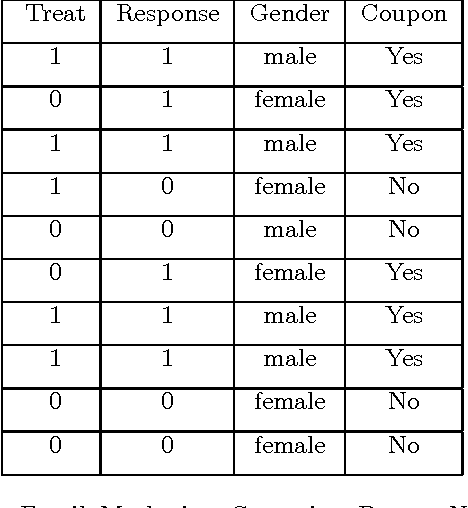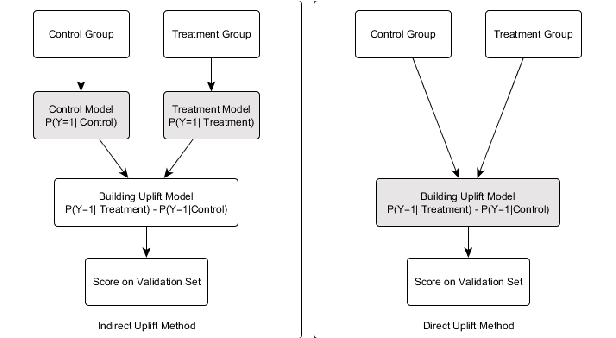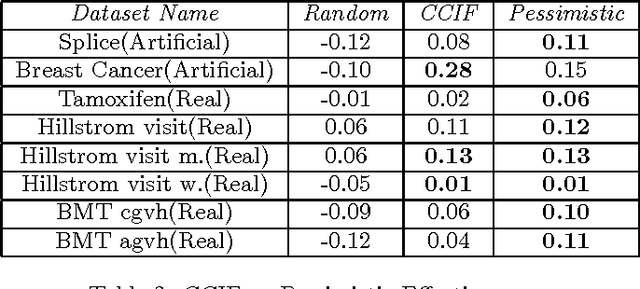Atef Shaar
Pessimistic Uplift Modeling
Apr 19, 2017



Abstract:Uplift modeling is a machine learning technique that aims to model treatment effects heterogeneity. It has been used in business and health sectors to predict the effect of a specific action on a given individual. Despite its advantages, uplift models show high sensitivity to noise and disturbance, which leads to unreliable results. In this paper we show different approaches to address the problem of uplift modeling, we demonstrate how disturbance in data can affect uplift measurement. We propose a new approach, we call it Pessimistic Uplift Modeling, that minimizes disturbance effects. We compared our approach with the existing uplift methods, on simulated and real data-sets. The experiments show that our approach outperforms the existing approaches, especially in the case of high noise data environment.
 Add to Chrome
Add to Chrome Add to Firefox
Add to Firefox Add to Edge
Add to Edge